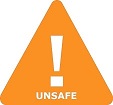Cuvposa | Glycopyrrolate Liquid while Breastfeeding

What is Cuvposa | Glycopyrrolate Liquid used for?
Cuvposa | Glycopyrrolate Liquid while breastfeeding safe or not? Can there be any side effects for infant while using it during breastfeeding?

Cuvposa | Glycopyrrolate Liquid Breastfeeding Analsys
Glycopyrrolate while Breastfeeding
UnsafeCAS Number: 596-51-0
Use minimal dosage. Do not use on a long-term basis since anti-cholinergic drugs may decrease milk production. Not commercially available in Spain
Cuvposa | Glycopyrrolate Liquid Breastfeeding Analsys - 2
Glycopyrrolate while Breastfeeding
CAS Number: 596-51-0
No information is available on the use of glycopyrrolate during breastfeeding. Because glycopyrrolate is a quaternary ammonium compound, it is not likely to be absorbed and reach the bloodstream of the infant,[1][2][3] especially when given by inhalation or topically on the skin. Long-term oral use of glycopyrrolate might reduce milk production or milk letdown, but a single dose is unlikely to interfere with breastfeeding. During long-term use, observe for signs of decreased lactation (e.g., insatiety, poor weight gain).
I already used Cuvposa | Glycopyrrolate Liquid and meanwhile I breastfed my baby should I be concerned?
If you observer abnormal behavior or any other health issue in infant then you should immediately call 911 or contact other contact other emergency service provider in your area otherwise closely monitor the baby and inform your doctor about your Cuvposa | Glycopyrrolate Liquid usage and time interval of breastfeeding.
I am nursing mother and my doctor has suggested me to use Cuvposa | Glycopyrrolate Liquid, is it safe?
If your doctor knows that you are breastfeeding mother and still prescribes Cuvposa | Glycopyrrolate Liquid then there must be good reason for that as Cuvposa | Glycopyrrolate Liquid is considered unsafe, It usually happens when doctor finds that overall advantage of taking
If I am using Cuvposa | Glycopyrrolate Liquid, will my baby need extra monitoring?
Yes, Extra monitoring is required if mother is using Cuvposa | Glycopyrrolate Liquid and breastfeeding as it is considered unsafe for baby.
Who can I talk to if I have questions about usage of Cuvposa | Glycopyrrolate Liquid in breastfeeding?
US
National Womens Health and Breastfeeding Helpline: 800-994-9662 (TDD 888-220-5446) 9 a.m. and 6 p.m. ET, Monday through Friday
UK
National Breastfeeding Helpline: 0300-100-0212 9.30am to 9.30pm, daily
Association of Breastfeeding Mothers: 0300-330-5453
La Leche League: 0345-120-2918
The Breastfeeding Network supporter line in Bengali and Sylheti: 0300-456-2421
National Childbirth Trust (NCT): 0300-330-0700
Australia
National Breastfeeding Helpline: 1800-686-268 24 hours a day, 7 days a week
Canada
Telehealth Ontario for breastfeeding: 1-866-797-0000 24 hours a day, 7 days a week
